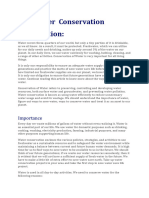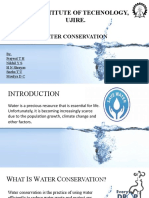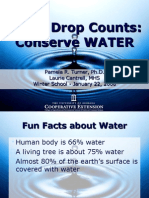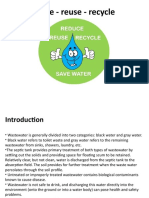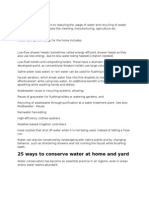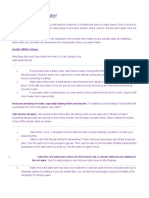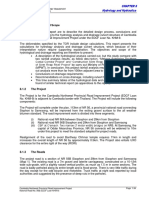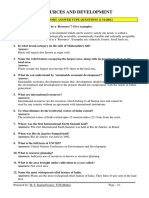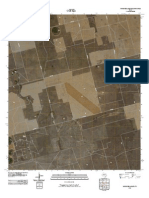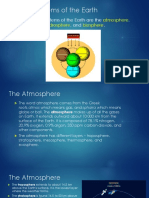0% found this document useful (0 votes)
15 views16 pagesEcology Unit 6 2
The document discusses the critical importance of water conservation in light of rising demand and climate change impacts on water availability. It outlines various strategies for conserving water at home and in the hospitality industry, emphasizing the need for public awareness and efficient resource management. Key methods include reducing water loss, implementing rainwater harvesting, and educating both staff and guests on sustainable practices.
Uploaded by
Jraz DeuzaCopyright
© © All Rights Reserved
We take content rights seriously. If you suspect this is your content, claim it here.
Available Formats
Download as PDF, TXT or read online on Scribd
0% found this document useful (0 votes)
15 views16 pagesEcology Unit 6 2
The document discusses the critical importance of water conservation in light of rising demand and climate change impacts on water availability. It outlines various strategies for conserving water at home and in the hospitality industry, emphasizing the need for public awareness and efficient resource management. Key methods include reducing water loss, implementing rainwater harvesting, and educating both staff and guests on sustainable practices.
Uploaded by
Jraz DeuzaCopyright
© © All Rights Reserved
We take content rights seriously. If you suspect this is your content, claim it here.
Available Formats
Download as PDF, TXT or read online on Scribd
/ 16












